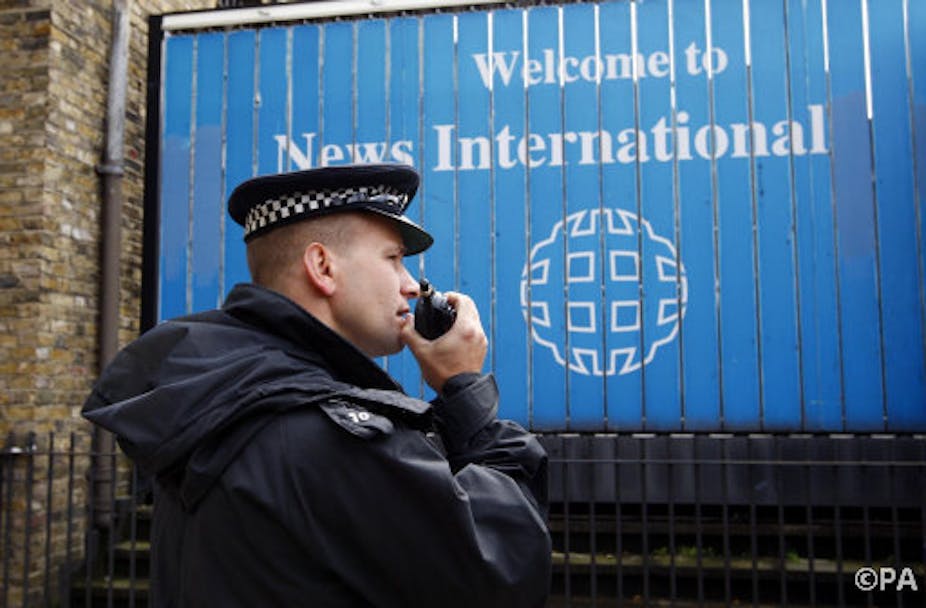This week, the World Association of Newspapers begins investigating the condition of press freedom in Britain, while national newspapers report that a chief constable wants Channel 4 to hand over material about undercover officers spying on Stephen Lawrence’s family.
A typical week in Britain, where whistle-blowers and journalists’ sources are criminalised, persecuted and socially demonised; where journalism is styled by academia and politicians as “ruining people’s lives”; where the main political parties are bullying the print and online media to accept state approval and supervision of content regulation; where journalists and sources have been arrested, charged and prosecuted at a shocking rate for a democratic country; where media institutions are effectively at war with each other, each claiming the moral high ground. After forty years in British journalism, I am ashamed.
My late father fought totalitarian fascism and communism, and never stopped mourning his fellow infantry soldiers whose blood soaked the fields and hedgerows of Normandy in 1944 in the cause of freedom and democracy. In his dying days, he told me to carry on the fight, and that tyranny could always be recognised when journalists are stopped from asking unpopular questions and lawyers from representing unpopular causes. I never thought that these conditions would be with us in 2014.
Yet it still has to be stated over and over again that the state must not use the law to deter sources from contacting journalists, nor punish journalists and their sources for talking to each other. Protection of sources, even when they veer into moral and legal ambiguity, is the lifeblood of democracy and liberty. Without it, journalists are kept from being the watchdogs of democracy.
It is shameful that politicians, the judiciary and academia have apparently declared war on whistleblowers. In doing so, they have made themselves the cheerleaders of authoritarianism. In a free society, no-one can be the sole authority on the public interest, the lines between lawful and unlawful, moral and immoral.
And the right of public interest protection cannot be allocated based on prejudicial contempt for tabloid title tattle and pompous and arrogant claims to high political and cultural journalism. Discriminating against the likes of the Sun, Mirror, Star and Hello! while according public interest defence and protection to the Guardian, Financial Times and Economist is, indeed, authoritarian. Democracy is all about equality before the law, transcending all personal differences – including taste.
The protection of sources – overt and covert, explicit and implicit, single and multiple – is the front line, the battleground where media freedom is measured in any society. But in Britain there is not even a consensus about its importance, and a worrying lack of anxiety or concern.
What must be done
Confidential journalistic material obtained from sources must continue to have the protection of the Police and Criminal Evidence Act 1984, and recent events have shown how badly this constitutional shield needs strengthening. The treatment of newspaper journalist Sally Murrer, the scores arrested at dawn as part of Operation Elveden, the detention of David Miranda under schedule 7 of the Terrorism Act 2000 – these events and others besides betray a terrible decline in British standards of press freedom.
The Chartered Institute of Journalists, the oldest professional body for journalists in the world, passed a key resolution last October deploring and condemning the disastrous surrendering and hunting of confidential material given to journalists by their sources.
Confidential information and the identity of sources must only be surrendered under a court order, issued after a hearing in which the sources and individual journalists concerned have exercised their right to independent representation. Sadly, we cannot even rely on the ability of the judiciary to exercise a proper understanding of open justice, accountability, and privilege in client and legal communication, as the current debacle at the Investigatory Powers Tribunal (IPC) demonstrates so lamentably.
Parliament must pass legislation to ensure that confidential sources who have been identified negligently and without court order by media institutions receiving, using or paying for their information can sue for compensation. They need a remedy for the breach of their Article 10 Freedom of Expression protection of source rights. These rights have long been recognised in both English common law and the European Court of Human Rights, and the line of powerful rulings has been asserted as recently as November 2012 in the case of Telegraaf v The Netherlands. This case justified the protection of sources even if they have broken the law in communicating their information.
By contrast, the use of the offence of “misconduct in public office” to criminalise any civil servant for simply talking to a journalist without permission is the work of a police state. It is even worse when any public interest evaluation is reserved for the state’s criminal prosecuting official and authority in the form of the DPP and CPS.
The CIoJ has quite rightly called for legal recognition of the right of sources to have a remedy against media publishers that betray their duty of confidentiality. This should also include any failure by the state’s judiciary to protect them. UK journalists sources should be given the same recognition as set out in the US Supreme Court in Cohen v Cowles from 1991.
But alongside all this, our authoritarian political, judicial and academic elite should seriously begin to question their own ethics and political imperatives. Instead of continually demonising a revolting caricature of the journalist stereotype, they must reflect on the need for impartial representation and consideration. Without properly protecting journalists’ sources, we risk the loss of our own democratic dignity.

